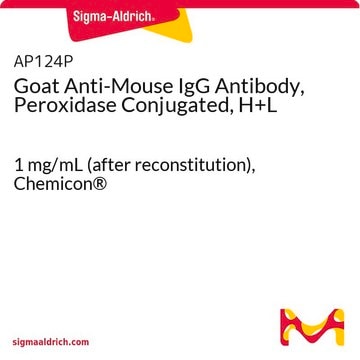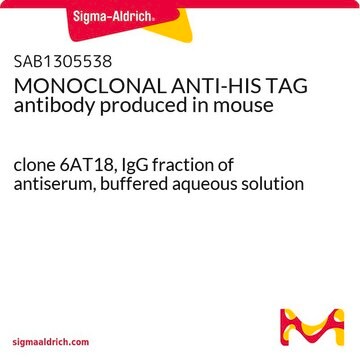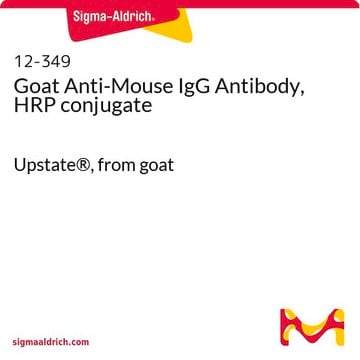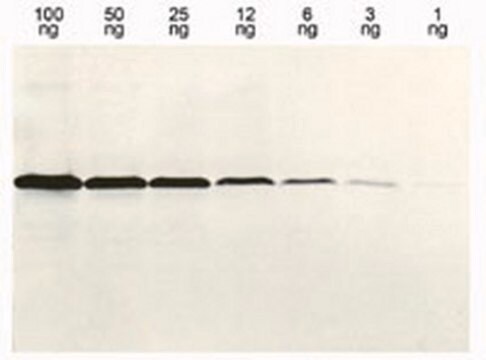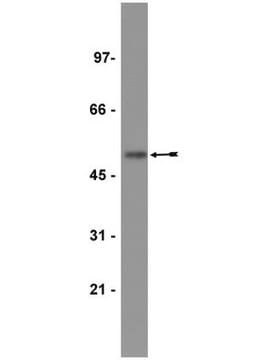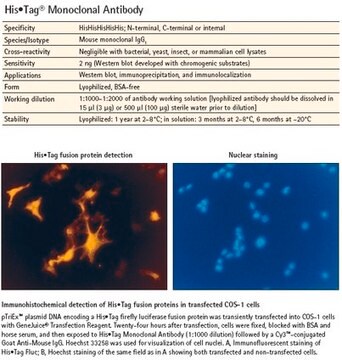11922416001
Roche
Anti-His6
from mouse IgG1
Sinónimos:
metal chelate affinity chromatography
About This Item
Productos recomendados
biological source
mouse
Quality Level
conjugate
unconjugated
antibody form
purified immunoglobulin
antibody product type
primary antibodies
clone
monoclonal
form
lyophilized
packaging
pkg of 100 μg
manufacturer/tradename
Roche
isotype
IgG1
storage temp.
2-8°C
General description
Specificity
Application
- Immunoblotting (e.g., dot blots and western blots)
- Immunoprecipitation
- Immunoassays (ELISA)
- Immunocytochemistry
- Immunofluorescence
Preparation Note
Working concentration: Working concentration of conjugate depends on application and substrate.
The following concentrations should be taken as a guideline:
- ELISA: for detection 0.1 μg/ml; for coating 1 to 5 μg/ml
- Immunoprecipitation: 0.5 to 5 μg/ml
- Western blot: 0.2 to 0.5 μg/ml
Reconstitution
Other Notes
¿No encuentra el producto adecuado?
Pruebe nuestro Herramienta de selección de productos.
signalword
Warning
hcodes
Hazard Classifications
Aquatic Chronic 3 - Skin Sens. 1
Storage Class
11 - Combustible Solids
wgk_germany
WGK 2
flash_point_f
does not flash
flash_point_c
does not flash
Certificados de análisis (COA)
Busque Certificados de análisis (COA) introduciendo el número de lote del producto. Los números de lote se encuentran en la etiqueta del producto después de las palabras «Lot» o «Batch»
¿Ya tiene este producto?
Encuentre la documentación para los productos que ha comprado recientemente en la Biblioteca de documentos.
Los clientes también vieron
Nuestro equipo de científicos tiene experiencia en todas las áreas de investigación: Ciencias de la vida, Ciencia de los materiales, Síntesis química, Cromatografía, Analítica y muchas otras.
Póngase en contacto con el Servicio técnico